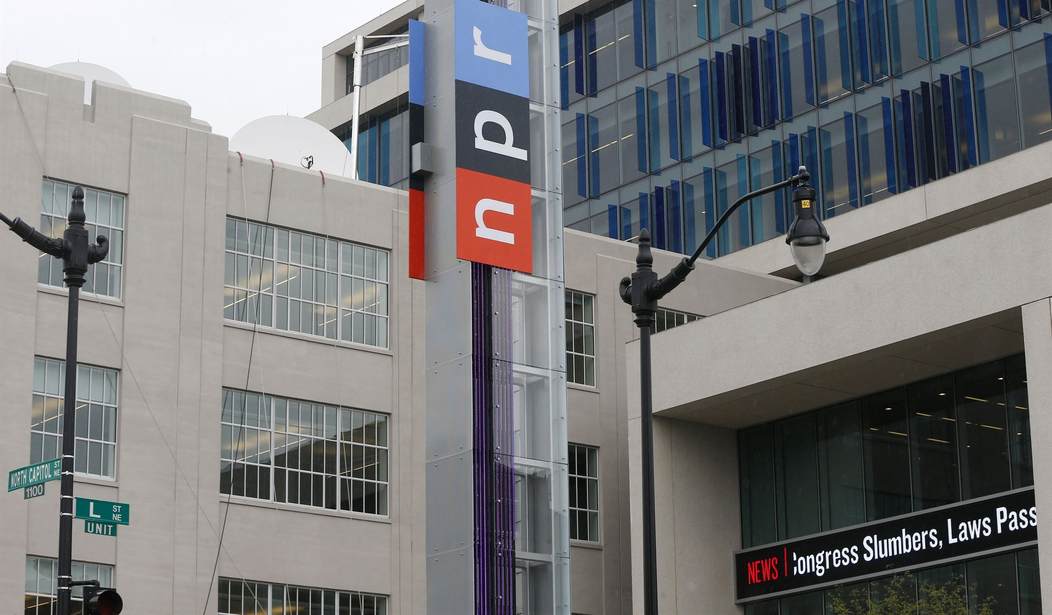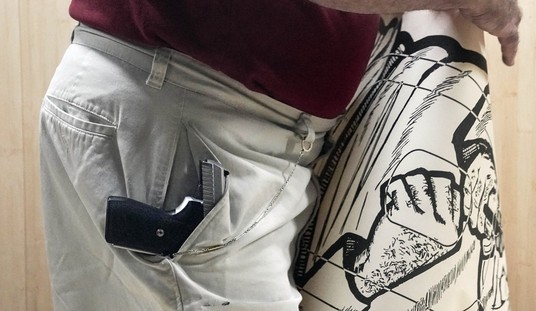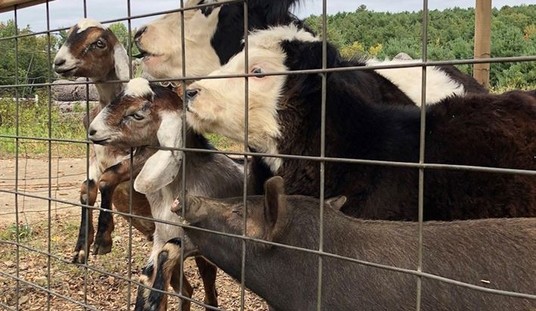Gun industry exec-turned gun control activist Ryan Busse is making the media rounds hawking his new book about why he supposedly decided to leave gunmaker Kimber and devote his full time and attention to “common sense gun reforms,” and it shouldn’t come as a shock that a lot of media outlets are more than happy to gloss over some of the inconvenient portions of Busse’s narrative.
The lastest example comes from NPR’s “Fresh Air”, which recently devoted an entire segment to Busse and his new book, but failed to inform its audience of some specifics that are important to Busse’s story.
“I grew up hunting and shooting with my father. Guns were things we used on the ranch and farm,” he says. “The few times that we got to spend together doing something fun and enjoyable, oftentimes it was with a gun. … [Guns] are things that became very culturally important to us.”
After college, Busse went to work for the firearms manufacturer Kimber America, where he was so good at marketing the weapons that he became a rising star of the industry. But over the years, he became disillusioned when he saw the NRA refuse to consider gun controls after mass shootings.
“After Columbine, [the NRA] stumbled upon this idea that fear and conspiracy and hatred of the other could be used to drive and win political races,” he says. “And, accidentally, those are exactly the same things that in high doses drove unhealthy portions of firearm sales.”
Note when Busse says he became disillusioned: more than 20 years ago, in the aftermath of the Columbine shooting. We’ll come back to that in a moment. But first, we’ve got some other ridiculousness to deal with.
Busse notes that when he first started out, weapons manufacturers refused to market high-powered automatic weapons to the public. But, he says, the gun makers and the NRA have since embraced military-style weapons and tactical gear, branding them as symbols of masculinity and patriotism. This is when, he says, “the frightening vigilante activity that we have seen with Kyle Rittenhouse or the various other incidents across the country really got its start.” (Rittenhouse was tried and acquitted of all charges related to the shooting deaths of two men and the wounding of another during protests in Kenosha, Wis., in 2020.)
Gun makers aren’t marketing “high-powered automatic weapons” to civilians today, and if Busse’s claiming they are then he’s lying. Why would gun makers advertise automatic rifles to civilians when they can’t legally purchase a machine gun manufactured after 1987? I don’t know if NPR decided to use this description on their own or if they’re quoting Busse, but either way the information is wrong.
It’s also wrong to claim that gun makers weren’t marketing AR-15s and other semi-automatic modern sporting rifles to the public when Busse signed on at Kimber in 1995. Colt was advertising its AR-15 to hunters as early as 1963, and if there weren’t many ads for AR-15s in 1995 it was probably because Joe Biden’s ban on so-called assault weapons had gone into effect the year before.
Then there’s Busse’s casual smear of Kyle Rittenhouse, which was presumably made before a jury acquitted him on all charges. Not that it matters much to Busse or other gun control activists. As we’ve already seen, the truth isn’t nearly as important to them as convincing Americans that it’s wrong to defend their Second Amendment rights.
Busse eventually left the gun industry. In 2020, he accepted a position as an adviser to Joe Biden’s presidential campaign, and in 2021 he was hired as a senior advisor to the gun violence prevention group Giffords. He says he still owns and uses guns, and he believes in Americans’ right to do the same.
But, he says, “I also know that every right that we enjoy has to be balanced with the appropriate amount of responsibility. And I believe that over time … that has gotten badly out of whack.”
Yeah, Busse “eventually left the gun industry” in 2020, just a short time before he signed up with the Biden campaign as a gun control advisor. That means, by the way, that according to Busse’s own timeline, he spent 20 years or so making a good living selling guns even though he was already disillusioned by the firearms industry. That seems important, so why didn’t NPR inform its audience of that fact?
My guess? Because it makes Busse look bad, and that wasn’t NPR’s angle here. Quite the opposite, as a matter of fact. They’re presenting Busse as the gun guy with a heart of gold; the reformer who tried to change the system from within before jumping ship and signing up with the good guys. Any information that gets in the way of that narrative, no matter how important it might be for the audience to consider, isn’t going to make it into the final story.
I always thought the “PR” in NPR stood for Public Radio, not Public Relations, but I guess I was wrong. At least when it comes to the gun control lobby, the public broadcasting giant is taking a “wait wait, don’t tell them” approach to providing its audience with all the pertinent information they need to make an informed judgement of their own.










Join the conversation as a VIP Member